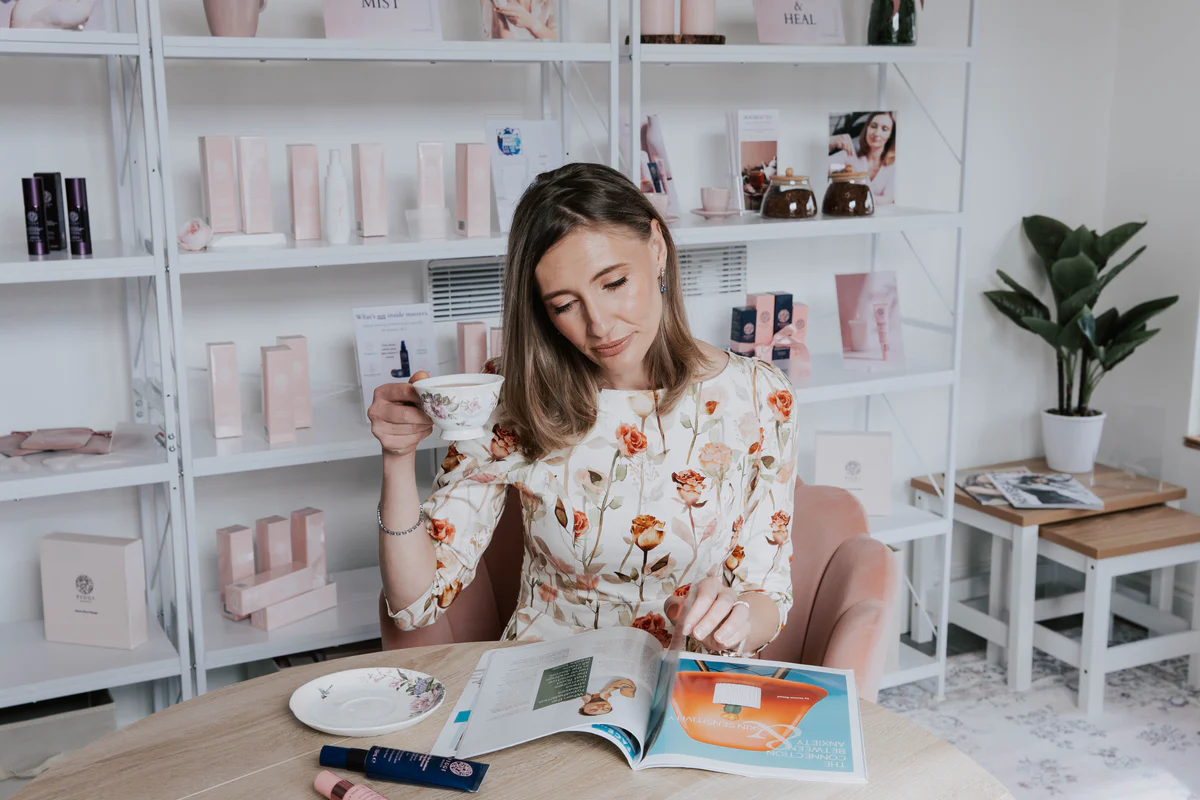Why Self-Care Means Owning the Energy You Bring: Insights from Dr. Jeanne Retief, Entrepreneur and Mental Health Advocate
Dr. Jeanne Retief, entrepreneur and founder of Figgi Beauty UK, shares a deeply personal and pragmatic approach to mental wellness and self-care—an approach that resonates strongly within B2B and leadership communities. Navigating her own experience with panic disorder, Dr. Retief offers insights rooted in authentic lived experience, emphasizing personal responsibility in how we manage our energy and relationships—both professional and personal.
“I may not be a mental health expert, but I certainly am a patient, mom, wife, and business owner that personally walks the path and knows what it feels like to navigate a mental health diagnosis every single day,” Dr. Retief begins, grounding her perspective in genuine experience. Her candid voice cuts through the noise of over-commercialized wellness trends to deliver a message about presence and responsibility.
Expressing frustration with the flood of self-care advice, she says, “I am sick to death of self-care or mental wellness advice… I get so frustrated when consumerism zones in on wonderful ideals meant to help us live authentically beautiful lives in the name of popularity or selling something.” According to Dr. Retief, self-care has shifted from a simple yet powerful concept into “a movement with so many rules to follow it could be likened to a new diet fad.”
Instead, she calls for a return to basics: “Self-care is truly caring about the space you occupy and others that share in your energy. It’s not a product, a diet, or a new self-help book that offers the secret to life. It’s me, and it’s you. It’s about how I occupy space in this world and how I share that space with you.” This reframing emphasizes the importance of owning one’s actions and recognizing their ripple effects.
Dr. Retief identifies guilt as a major barrier to genuine self-care. Many hesitate to take time for themselves because it “doesn’t feel right” when others around them are also stressed or busy. This guilt is compounded by the confusing and contradictory advice that pervades the wellness space.
Her personal story is a powerful testament to this dynamic: “I was not taking time to recharge my energy in ways that fulfilled me. This led to me being in a bad mood, having a severely short temper, and constantly being tired.” The toll was felt by those closest to her: “A mommy that’s always too tired to play a game or read a long story, a wife that snaps at every small thing, and a friend that brings down the entire mood of a girls’ day out.” These examples underscore how mental wellness directly impacts relationships, both at home and in business.
She invites reflection: “Recall a night out with hubby when you were both in a good and relaxed mood… Now recall a night you were both stressed, tired, and frustrated. How did that evening go? Uncomfortable silences? Snapping or biting remarks? Bickering over silly things?” These contrasts highlight the power of our emotional state to shape shared experiences.
Taking ownership, Dr. Retief says, “I believe I create the space I am in, and I am responsible for being aware of what I bring into the space I share with others… If I go home with a world of stress… I immediately hand that over to my family when I walk in the door.” This level of awareness is a crucial step toward healthier interactions.
To restore balance, she commits to “filling my cup with healing and good energy,” using accessible practices such as quiet retreats, meditation, drawing, yoga, and short mindful moments like grounding exercises or skincare rituals throughout her day. “These are all practices or routines that I know, for sure, fill my cup.”
The result? “I am calm, restored, fulfilled, and whole when my cup is filled. I project this energy to others or my home if I feel complete. I can read that long story, play snakes and ladders, listen attentively to my husband when he tells me about his day, and fully immerse myself in the sacred moment of being with a friend.” Her story vividly illustrates how mental wellness fosters stronger, more engaged relationships.
Dr. Retief underscores that self-care need not be complicated or costly: “Don’t commit to grandiose retreats, hour-long daily practices, or expensive products. There is only a need to want to be responsible for the space we take up and share with others. That, to me, is all self-care is.”
Closing with a universal truth, she reminds us: “None of us are islands. We all come together as a unit. Whether friend and friend, husband and wife, mother and daughter, or customer and cashier. We are all connected. Taking care of ourselves helps us be better people, not only for ourselves but for others affected by our decisions, words, and actions. Not everything has to be so complicated :-)”
For B2B leaders and professionals balancing demanding roles, Dr. Jeanne Retief’s insights offer a grounded and heartfelt reminder: self-care is not a luxury or trend but a vital leadership practice shaping how we show up for others. Her message encourages a shift toward ongoing personal commitment to cultivating positive energy and mindful presence—in business and life.
We invite you to reflect on your own approaches and share how you nurture mental wellness to build stronger relationships and more effective leadership. What simple self-care practices help you fill your cup and show up fully every day?
Explore more about Dr. Jeanne Retief and her work at figgibeautyuk.com and connect on Instagram: @figgi.beauty.







